Vincent van Gogh gingerly flirts with Amy Pond while Doc is chased by the space chicken in his godmother's rearview mirror
Doc is pitted against maggots, a giant fly and a wholly unrelated plot by a supercomputer to conquer the world of business in Jo Grant’s final serial
Podcast: Play in new window | Embed
Global Chemicals, in a bid to bring riches back to South Wales, have secured a government contract to muscle out coal in favour of the much cleaner and cheaper oil.
Understandably, this has brought the ire of Nobel laureate, professor Jones, a mushroom-fuelled conservationist and hippie romantic.
When a bright-green miner turns up dead, UNIT enters the scene to investigate, only to find gigantic maggots, suicidal zombie bureaucrats and a sinister reel-to-reel.
This was the final Doctor Who serial to feature Katy Manning as companion Jo Grant and she will be greatly missed.
On a related note, here is the “Global Conspiracy” mini-feature mentioned in this podcast episode:
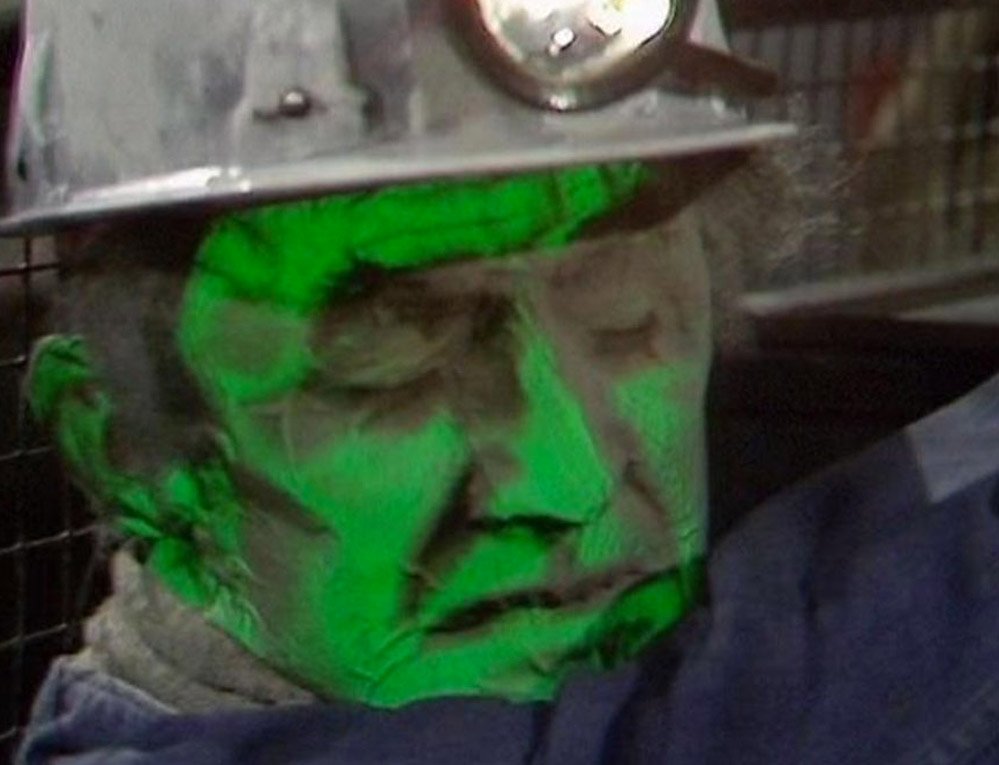

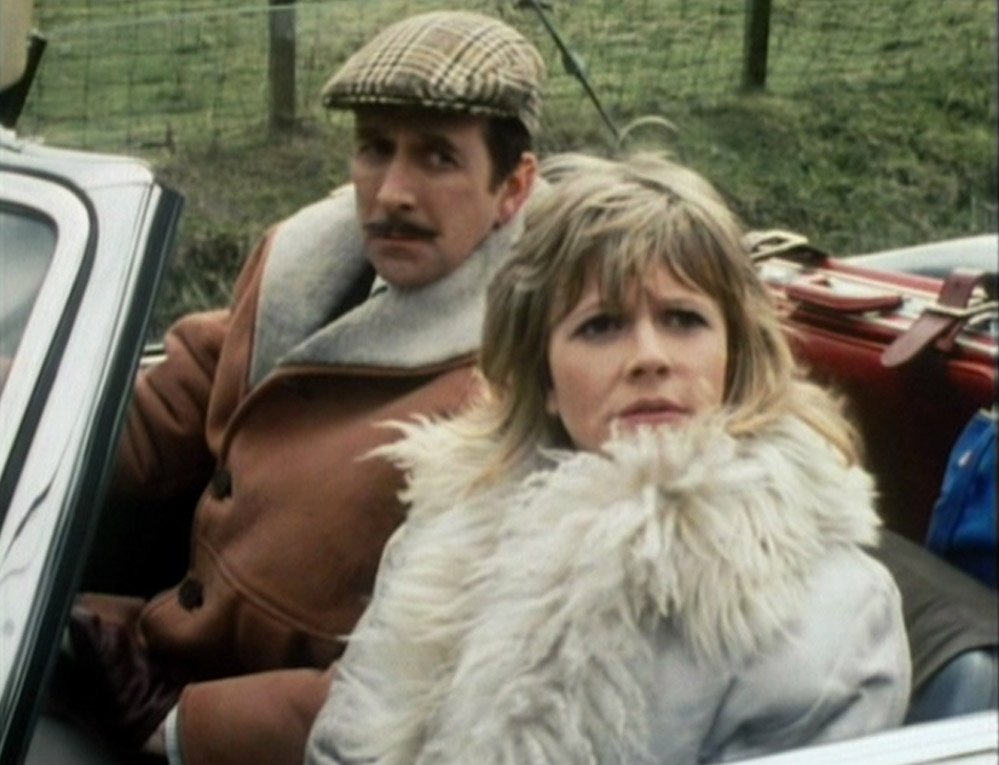

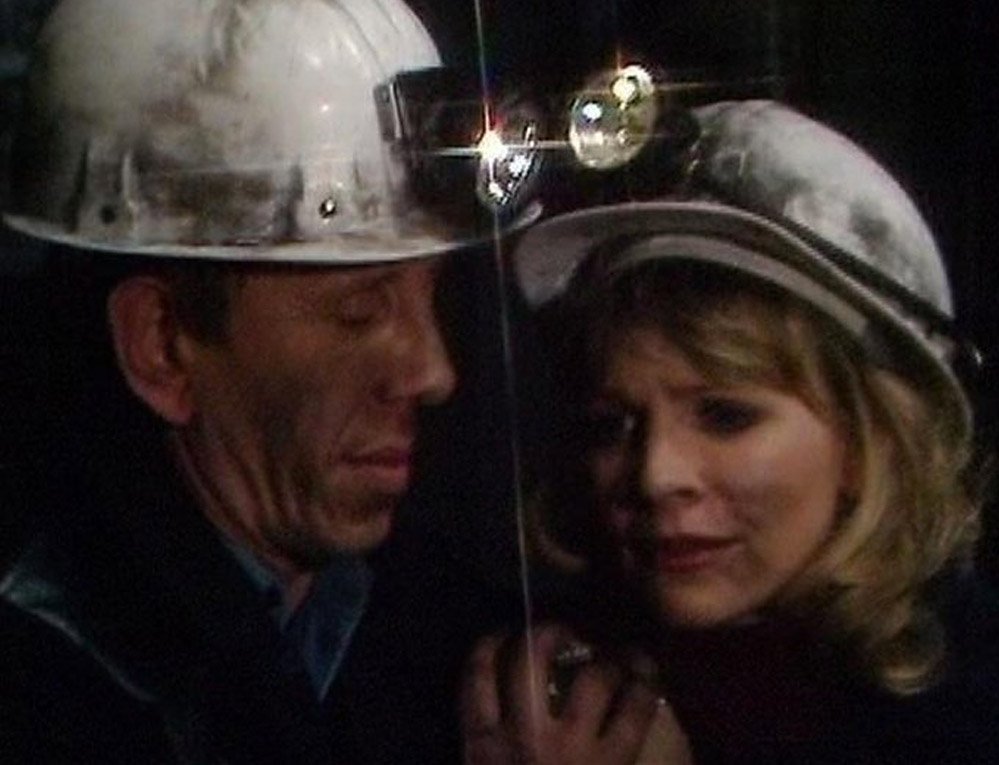

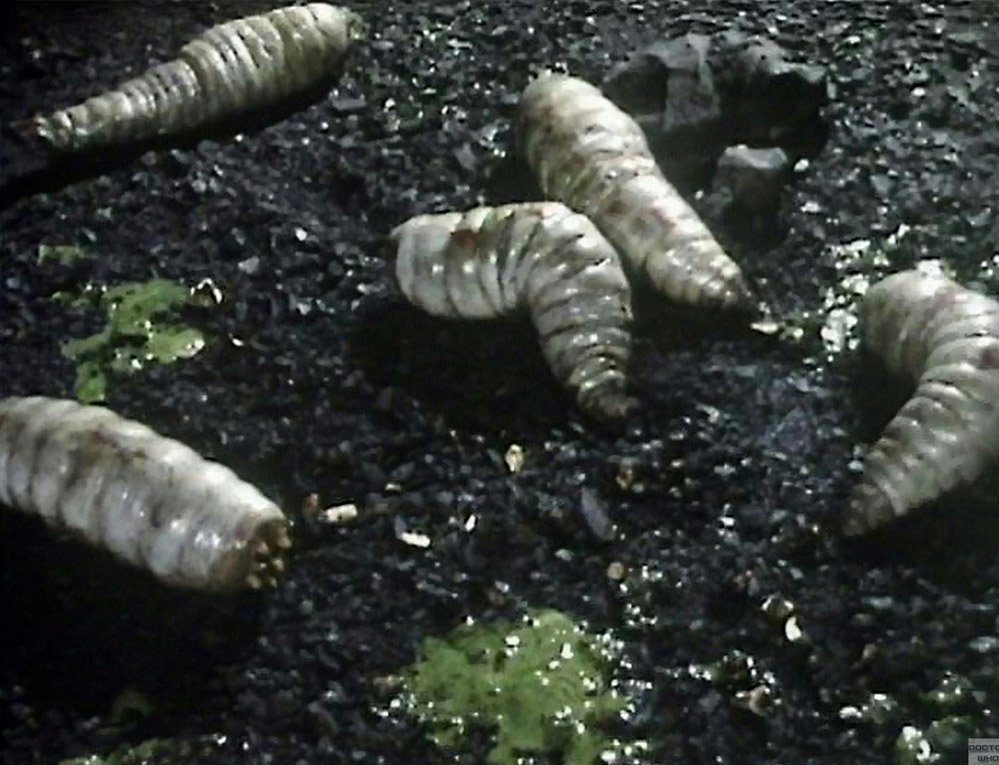

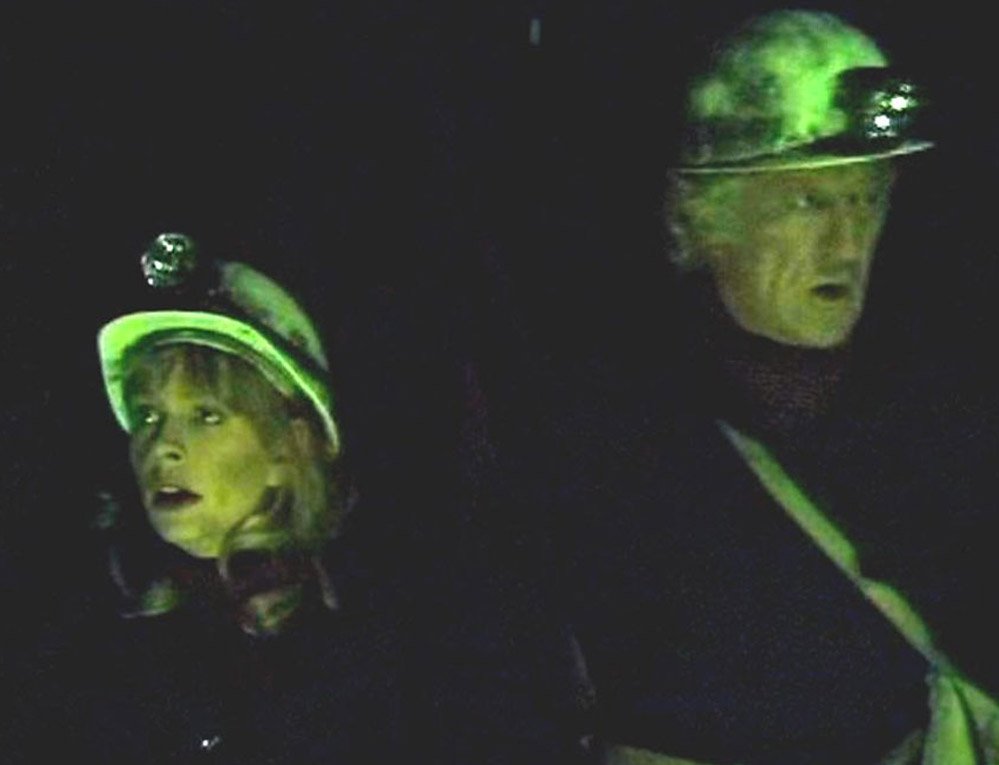

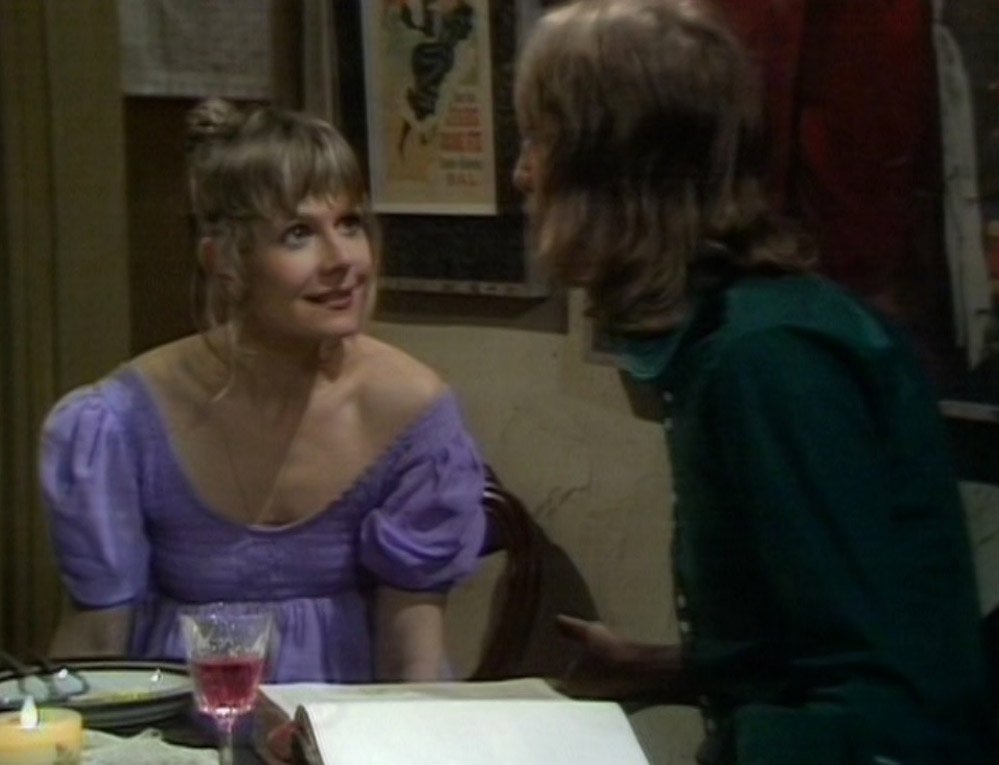

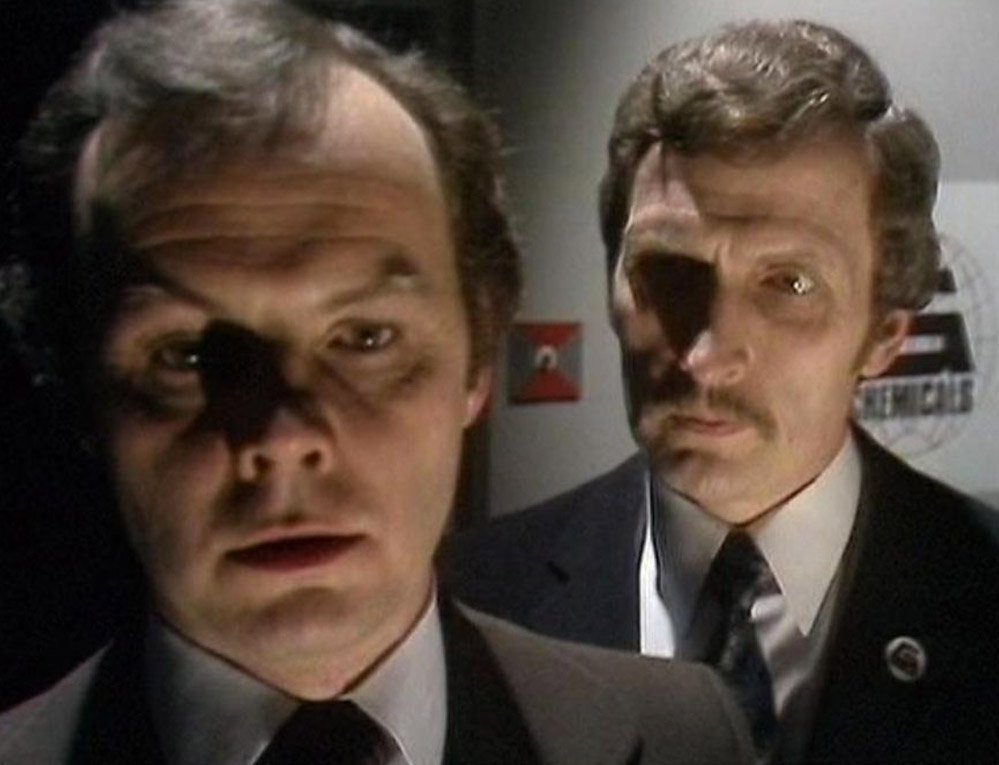

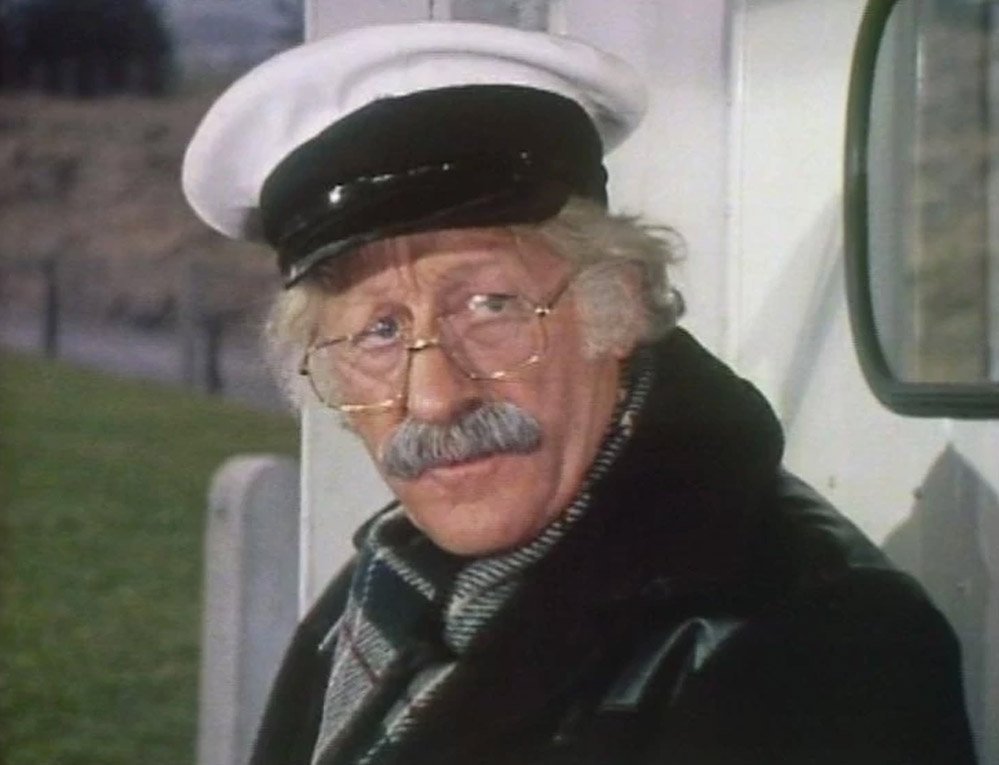

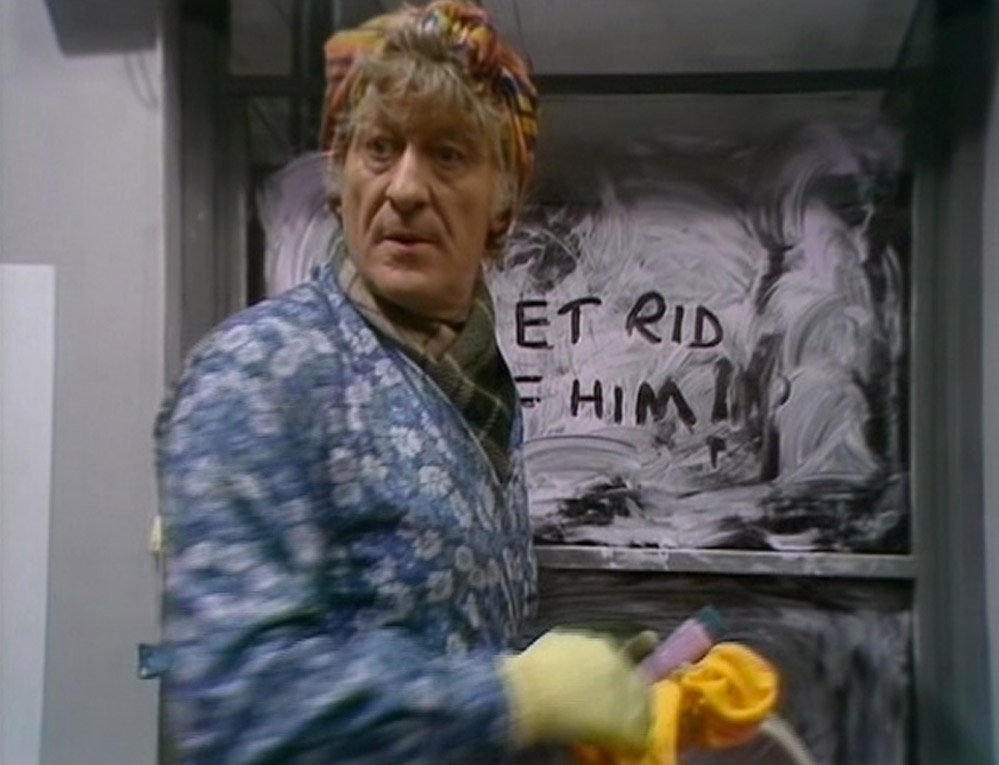

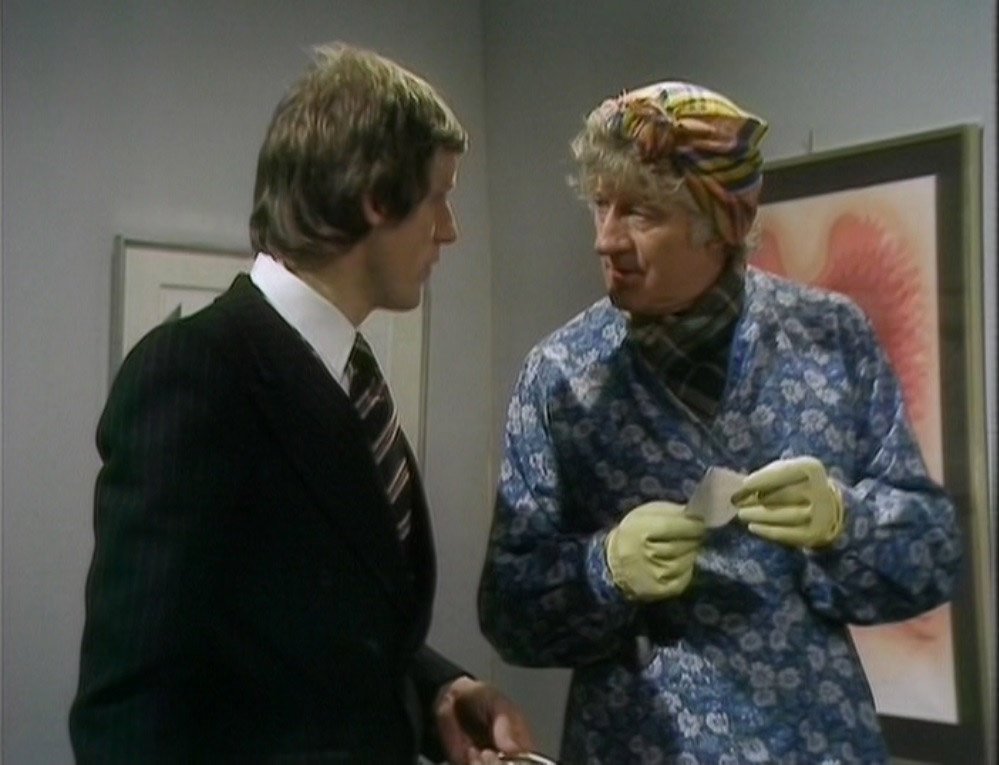

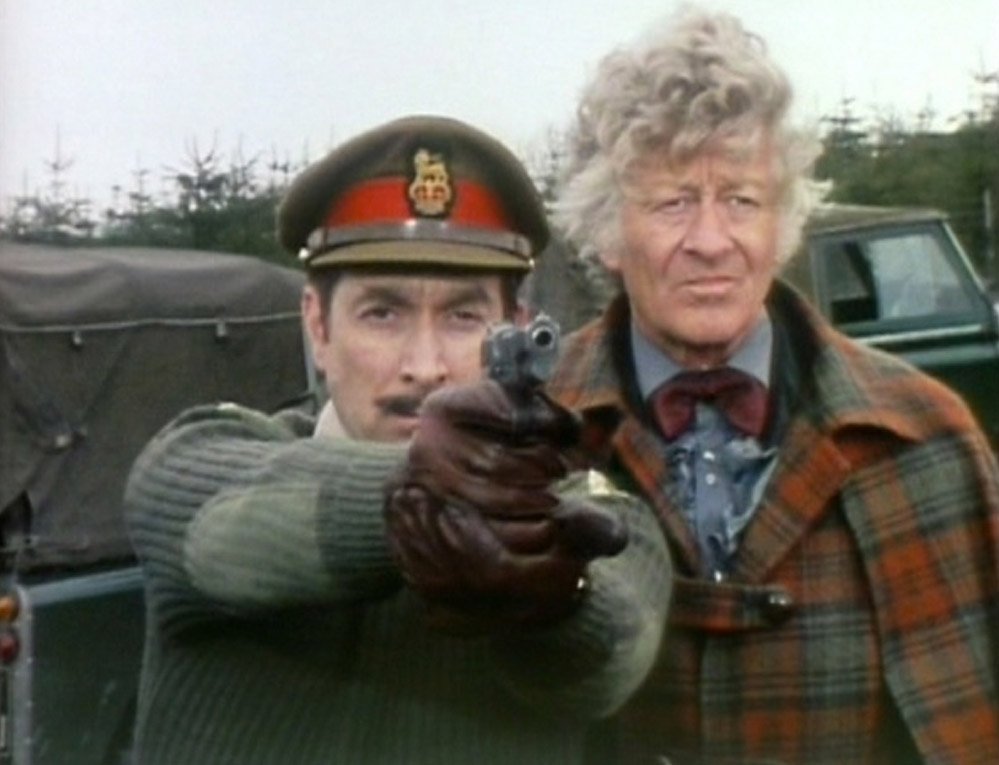



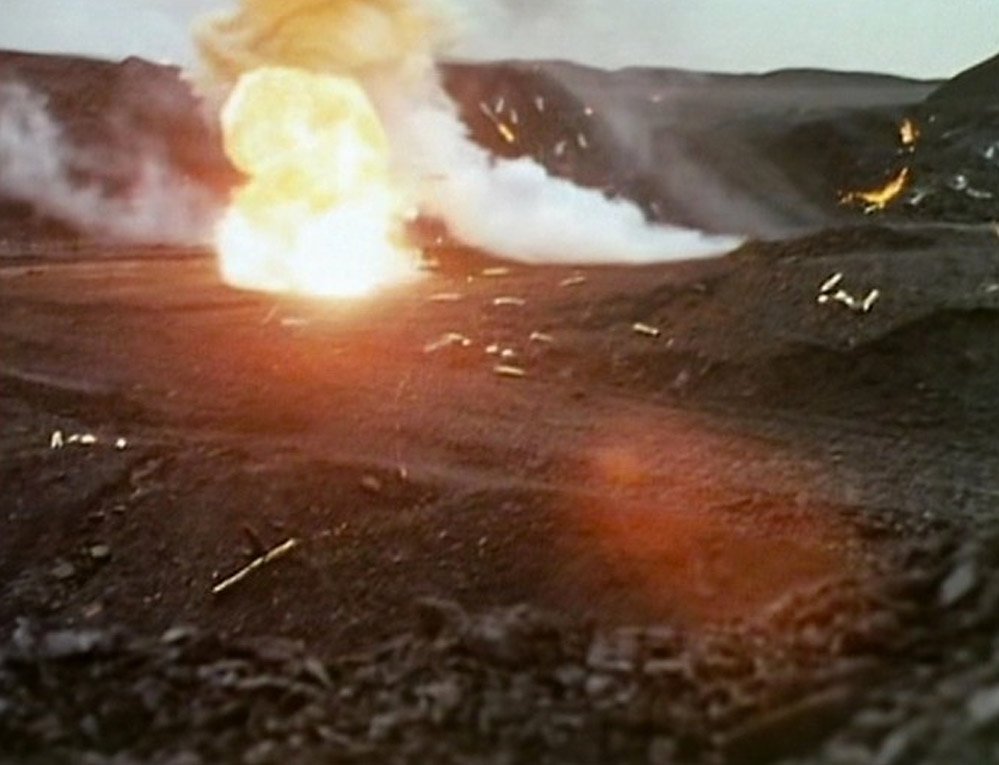

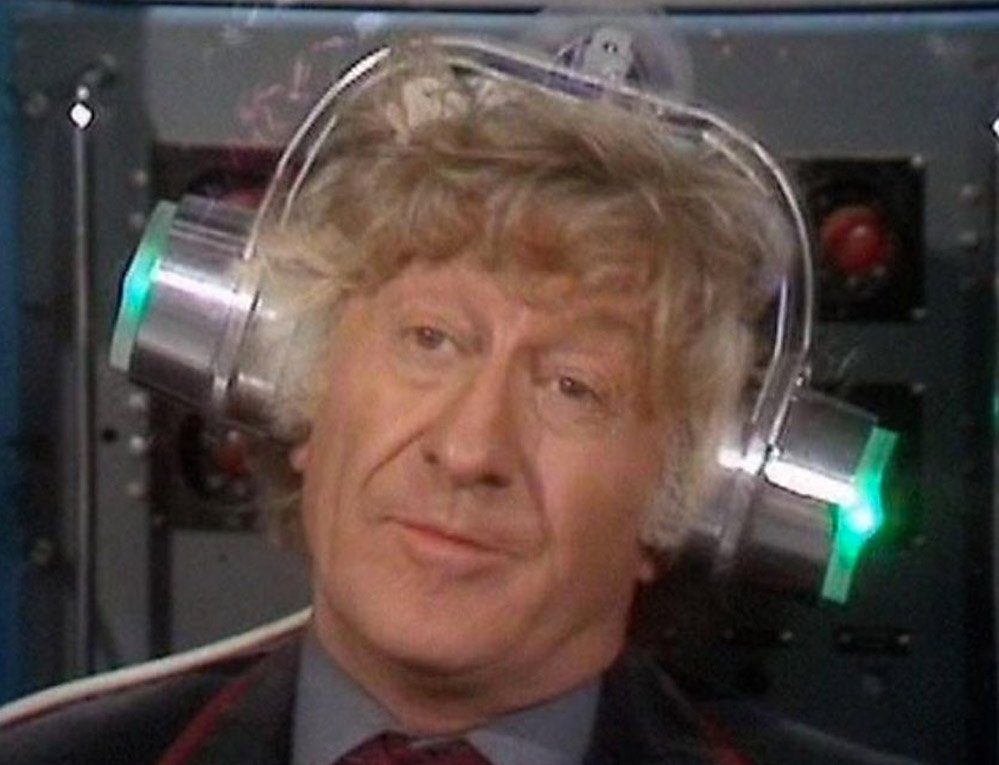

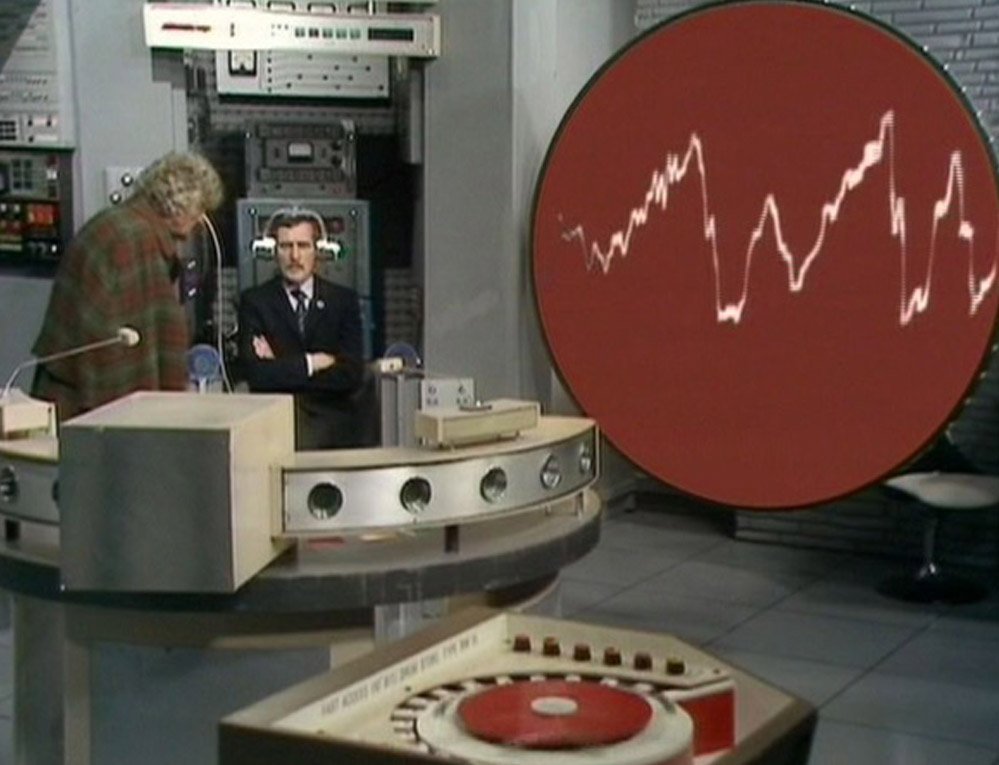

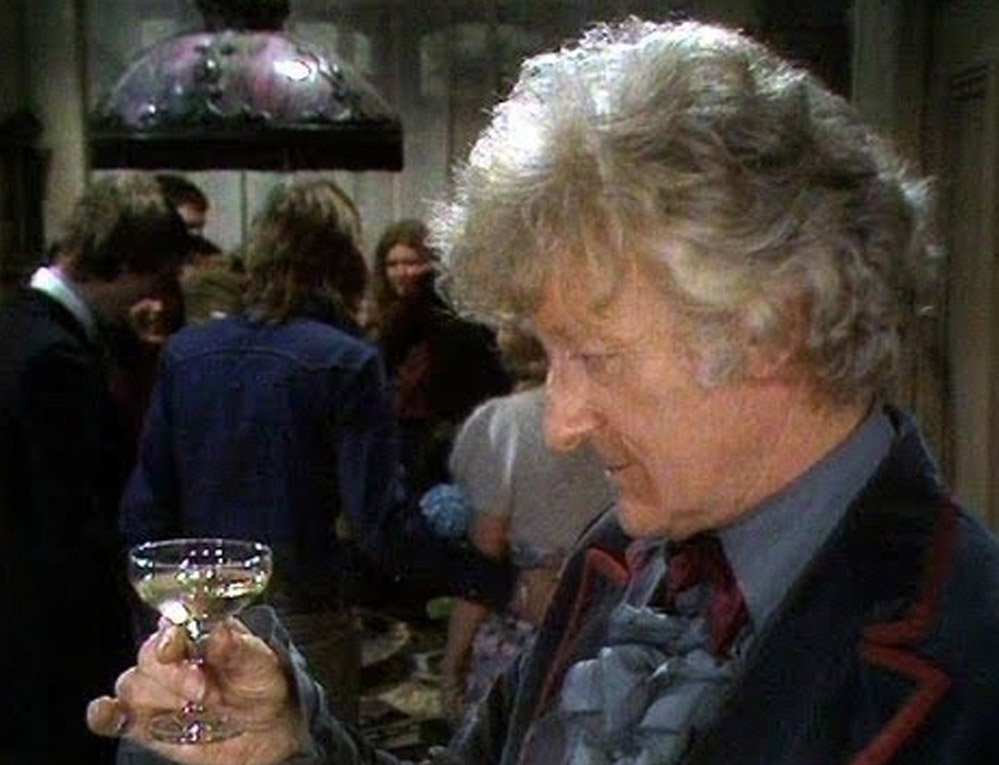

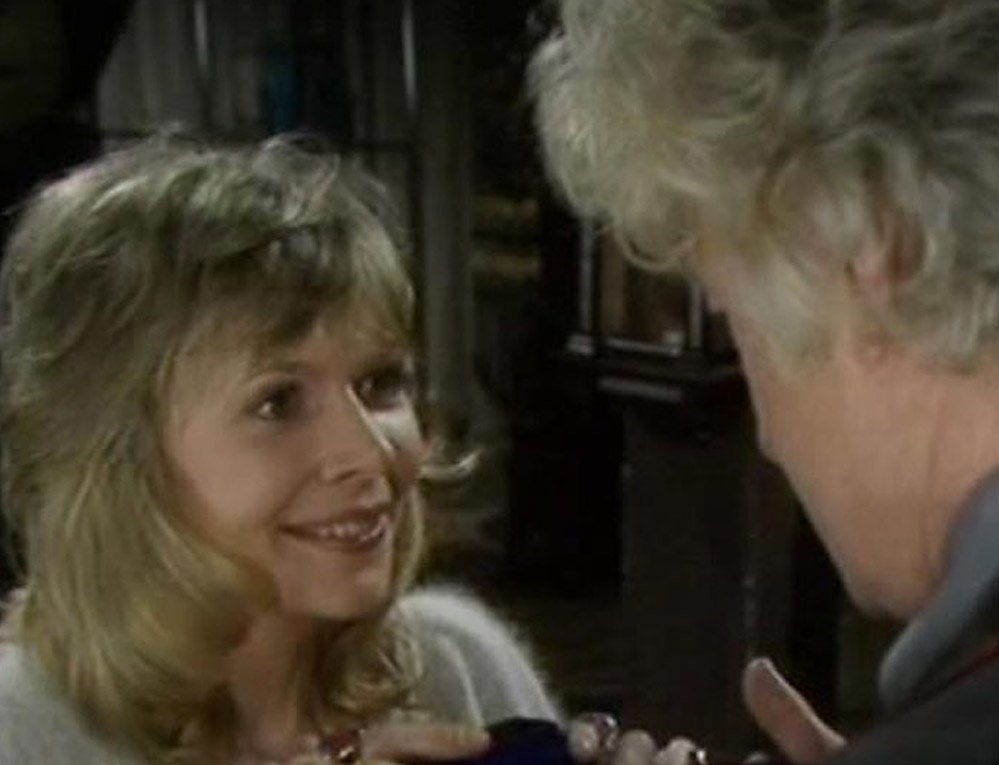


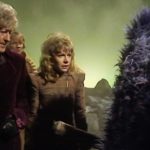
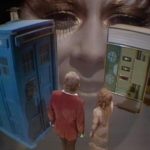







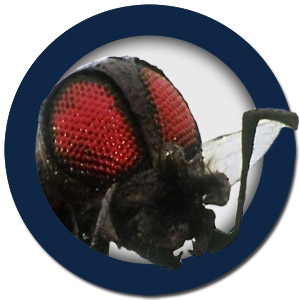








The biggest threat to Britain’s mining community pre-Thatcher.
Things I liked:
1. Aikido!
2. Awesomely grotesque maggots and looney evil computer.
3. The comedy Metebelis Three montage.
4. Not one, but two, hilariously terrible Doctor disguises. This story would have a darker edge if the naked bodies of the milkman and Dorris turned up in a ditch.
5. The brigadier at the hippie dinner in black tie.
Beefs:
1. Professor grumpy stupid hair and his merry band of pretentious losers. I always had a crush on Jo so I think I’m just jealous of Cliff, but that scene with his crew banging their drum and being weird during the dinner made me want to hurt them all. With a hammer.
2. Bert’s death! Why god, why!?
3. Nice secret undercover identity ‘Mike Yates’, if that is your real name. Oh right, it is.
4. Jo Grant, you heartbreaker you.
Fun Fact: Jo returns in an episode of the Sarah Jane adventures, also featuring the 11th Doctor.
In summary, wonderfully gross eco-horror. Regularly touted as the last serial of the ‘UNIT family’ – but there are still a few awesome UNIT stories to come, including eerie 4th Doctor serial ‘Terror of the Zygons’ and the Brigadier’s finest hour in bonkers 7th Doctor adventure ‘Battlefield’ where he takes on the baddies from King Arthur.
4.1/5 squiggly squirmy maggots. Yuk!
Producer Barry Letts; his co-writer Robert Sloman; and Script Editor Terrence Dicks tried to save the Earth in a DOCTOR WHO serial Malcolm Hulke novelized for Target Books. Jo left the Doctor for another scientist as their cautionary tale about the perils of pollution concluded, but the high minded ideals of “The Green Death” are familiar, having been frequently woven into the tapestry of the Doctor’s previous adventures.
A threatened ice age was a contemporary concern human ingenuity and worldwide cooperation combated on the deforested Earth in the 1967 serial “The Ice Warriors”. In the subsequent serial, “The Enemy of the World,” the villainous Salamander fed the overpopulated planet which had exhausted its natural resources. In 1971, “The Claws of Axos” suggested another fictitious means of alleviating hunger. Science fiction solved overpopulated with colonization and DOCTOR WHO used that idea in “The Ark” and “Power of the Daleks” in 1966; “The Macra Terror” the next year; and “Colony in Space” in 1971. A faded colonial empire materialized in the 1965 story, “The Space Museum” as well as 1972 in “The Mutants”. Two venerable empires formed the “Frontier in Space” the following year.
Energy, another favorite environmental topic, was featured in “Fury From the Deep”. It dealt with distribution of North Sea gas. Cheap, alternative energy also motivated the project that destroyed a parallel Earth in “Inferno.” In “The Green Death”, energy was the business of the story’s improbably named antagonist, Global Chemicals. The firm poured pollution into a disused coal mine while pursuing government funding for a process intended to increase oil’s energy output. At the end, a computer, BOSS, was revealed to run the corporation while plotting to initialize a human slave population after linking with computers around the world.
The story drew Jo Grant’s infatuation with Dr. Jones and his hippie commune, the Doctor’s hilarious journey to Metabelis Three, and the Brigadier’s investigating a dead miner’s green, glowing body together into a race against time that ended with an explosion. The idea of sealing the pollution in the mine blew up as gigantic, bulletproof maggots emerged to menace everyone. The Brigadier shines as a strategist, sending Yates into Global Chemicals as a spy. His making contact with the disguised Doctor was delightfully humorous. Jo was also well served, racing into danger to help Doctor Jones and engineering their rescue by the Doctor and Benton when he came after her Her pluck and ingenuity demonstrated how far her character developed since her introduction.
Because it’s DOCTOR WHO, this dizzying array of nonsensical, progressive codswallop entertains with strong characterization and good performances despite a problematic, padded plot. Despite the computer behind it all, the story cannot decide whether its energy corporation, Global Chemicals, or the maggots are the more monstrous, disgusting antagonists.
Greetings from the Nut Hutch. That place where we eat ‘shrooms, play with glow in the dark paint, hallucinate that we’re seeing giant worms and voices in our heads tell us to do bad things. Yes, that’s right, we’ve arrived in allegory town U.K., and what a splendid time we’re having!
This story’s great, even if it does cram its message down the throats of viewers harder than Inferno, It’s one enjoyable ride portrayed by great acting and characters we care about. The dialog is intense and the debates are well presented. Both the directing and editing are outstanding.
Yates is superb in his undercover role. The mineworkers, GC employees and Whole Weal players are all excellent supporters, and even the Boss, who to me is an unnecessary character is still incredibly realized. The maggots are just as intimidating as any other monster of the week, and were very well animated.
The downsides: Benton has little to do; the fly; the 5 person protest march causing an all-hands alarm; too many breaking into Global Chemicals scenes; and the mine lift wheels being the go-to shot when there͛s nothing else to cut to.
Jo’s departure is well-handled and we are reminded of the Doctor’s loneliness without a single word of dialog on the subject. Yet, as Nancy says in episode 5, “there’s plenty of fungus in the outhouse”, and Jo’s leaving means we͛re making room for Sarah Jane’s arrival. This story earns an,”exploding maggots on the slag heap”, 4.3.
As Season 10 drew to a close, we were treated to “The Green Death”, Jo’s final story travelling with the Third Doctor. What a brilliant farewell it was.
The maggots were handled brilliantly, even though some of them were in fact inflated condoms though you really can’t tell. The way people died in this story was almost reminded me of how people died in “The Crimson Horror” from Series 7 of the new series. The victims turn a strange color and are found dead like that, and it’s all caused by toxic bug like creatures. So, it won’t be the last time a concept like this is used.
The environmental message is alright, and I don’t think the whole thing with Metebelis III was intended to affect what would happen later in Season 11 (we’ll get there eventually). The big thing though is the huge use of CSO (green screen type stuff) was absolutely terrible at times. I know the money was gone by then, but is this the best you got? Really?
I want to talk about Jo’s exit for a moment. I’d say it’s one of the best companion exits ever. You can tell the Doctor is saddened by her going off to the Amazon with her new fiancé. The Doctor hasn’t been hit this hard by a companion exit since he left Susan behind in The Dalek Invasion of Earth. An interesting thing to note is that the person who played her soon to be husband, Stewart Bevan, was actually engaged to Katy Manning at the time. They sadly separated one year later.
So, what do I give this story? For the companion exit and the overall story alone, it’s already earned a 3. It gets a few bonus points for the maggots looking halfway decent and that ending where the Doctor quietly slips away and rides Bessie into the sunset. So, with Season 10 of the Classic Series at an end, I give this story 3.85 giant green maggots out of 5.
It was nice to have Jo repeat her initial clumsy scene with The Doctor when she first meets her future husband, Professor Non-Bumbletron. Her whole departure is dealt with rather well, and the conclusion provides the podcast with another weepy ending for the second week running.
Barry Letts likes to explore topical issues and/or approach stories in a relatively adult manner. In this serial we have both as the show deals with serious environmental concerns. It may also serve as a commentary on society’s impending reliance on technology.
Letts also tends to allow too much stereotyping, and this can become a little irritating, especially if people were expected to take these topics seriously. Nevertheless, it was enjoyable to see the Brig holding his own at what looked like turning into an “anything goes” beatnik party.
Having lived in South Wales myself, I can safely say that I have never heard anyone ever say “boyo”, unless they were from England and taking the piss.
McGuffinbelis-3 seemed like a curious place: “Jazz Moods”sunsets contrasting with killer squids, giant crows, people that throw things at you …and a snake!
I enjoyed this, but have some questions:
What happened to that guy with the glasses?… He just disappeared halfway through.
Why was Yates upset at losing Jo? He had his chance… about a million of them, actually.
Why didn’t The Doctor just pull the plug out of the computer?
If the place was going to blow anyway, why did Stevens stay behind to deactivate BOSS 9000?
Rating: 4.0
Often referred to as “The One With The Maggots”, The Green Death is an enjoyable and memorable story, if a little disjointed.
It feels like two ideas welded together, with a heartless corporation causing an environmental disaster while a sassy computer attempts to take over the world. The former gets explored in more detail and feels like the bigger threat, while BOSS just seems like an afterthought, something getting in the Doctor’s way as he tries to deal with the maggots. Once they’re killed off, defeating BOSS feels like a rushed formality. As much as I loved his interactions with Stevens, removing BOSS and cutting two episodes could have made this into a classic.
It picks up again for the final 5 minutes, as Jo makes her departure. She got to leave as she arrived: annoying a scientist with her bumbling before winning him over with her charm. As a character she’s had her ups and downs, but her rapport with the Doctor and UNIT will be missed. The Doctor was a bit too prissy about her leaving, though.
Some random complaints: The CSO is dreadful and completely unnecessary. And why are the miners all so suicidal? (“Luminous goo in the same shade of green as my dead mate? I’ll have a handful of that!”)
I feel bad not giving a story where the Brigadier drives a convertible with a blonde at his side and dines at a hippy commune in full evening wear anything less than a 5, but I’ll have to go for a solid 3.5.
This is the one that proves Jo Grant can never meet a scientist without ruining his experiments. God help us all if she ever meets MENSA.
Unlike a lot of the six episode serials, I didn’t feel the sense of padding I often get. Some plodding, but overall I’m not inclined to complain. Watching Jo and Professor Jones get close was enjoyable. Yet, given his attitude and comparisons to the Doctor, it left me wondering occasionally if this was a way to set Jo up with the Doctor without actually setting Jo up with the Doctor.
Episode 4 and the Doctor, Master of Disguise, was a highlight for me. While amusing, though, it’s one of those bits you get the feeling was written for Jon Pertwee more than for the Doctor. I also liked that Captain Yates got the limelight in his unexpected infiltration of Global Chemicals.
Despite knowing Roger Delgado was gone by this point, I couldn’t help but initially think that BOSS was going to be some new version of the Master. In fact, I honestly wonder if this was originally a Master story that was altered after Delgado’s passing. The name BOSS is certainly appropriate, and mind controlling people and having them cause massive damage while appealing to basic greed is right up his alley. For the BOSS himself, I can’t help but think the Doctor got to him towards the end there, with his increasing singing and irreverence.
I give The Green Death 3.7 / 5